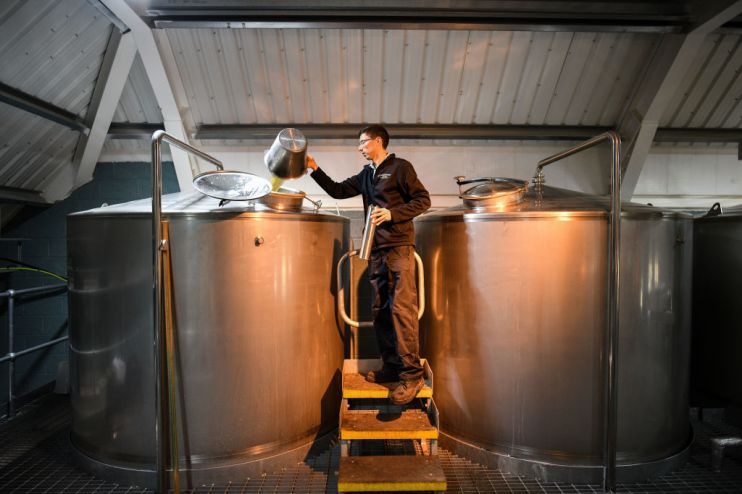Lift our economic spirits by keeping duties and tax down on Scotch Whisky

You will struggle to find another industry that is like the Scotch Whisky industry. One that’s continued to invest in the UK economy despite the lost exports, tourist visits and hospitality income during the pandemic, rising production and shipping costs, and the loss of more than half a billion pounds in revenue because of tariffs applied in the United States.
That the industry has weathered these challenges and bounced back to growth is a testament to the resilience of distillers, who have not just anticipated but driven consumer demand for premium products and experiences. People are drinking less but drinking better. That is good for the country, and good for Scotch Whisky.
They’ve made sure Scotch Whisky remains the UK’s number one food and drink export, and that distilleries continue to attract tourists from around the world, generating revenue for their communities. The growth of the industry, alongside other spirits, has outstripped that of beer, wine or cider – generating more for public finances.
It would be easy, in the face of such successes, to say the industry is doing well and that distilleries do not need help. The former might be true, but the latter is anything but. Distillers may be recovering from the disruption of the last two years, but they are now facing new challenges of supply chain disruption and spiralling costs. It would be a mistake for the government to add to the pain by increasing what is already one of the highest levels of excise duty in the world. It is not an exaggeration to say that the future of an iconic industry over 500 miles away will be decided here in London in just a few months’ time.
As the two remaining Conservative candidates for prime minister visit Scotland today to take part in another hustings, they will no doubt meet one of the 10,000 people directly employed in the sector, and maybe one of the countless skilled workers employed in its supply chain.
To take a sledgehammer to that industry and its workforce would be to undo almost a decade of tax stability that has aided growth and investment in exchange for a lot of pain and very little, if any, monetary gain.
Nearly a third of distillers are reporting that their shipping costs have increased by more than a hundred per cent in the last 12 months, while two-thirds have seen energy costs rise by over ten percent. These are major additional expenses for an industry shipping 44 bottles a second to 180 markets worldwide – and there’s little optimism within the industry that the cost pressures will be relieved over the next year.
These pressures compound the handicap that the Scotch Whisky industry faces in the UK. 70 per cent of the cost of a bottle is already claimed in tax – a far higher burden than the likes of beer, wine and cider. The competitive disadvantage could be increased if a new Chancellor presses forward without any change to the paused Treasury plans to reform how alcohol is taxed in the UK, which would focus on higher strength products despite there being less alcohol in Scotch Whisky highball (two units) than a pint of 4 per cent ABV beer or cider (2.2 units). This is not modern, nor does it create the fairer system we all want to see.
There is inevitably pressure to find revenue after two years of borrowing. But raising spirits duty this autumn, putting more pressure on businesses and consumers at a time of rising inflation, will inhibit distillers’ continued ability to invest, denying the Treasury the taxable revenue that comes with growth.
None of this should come as a surprise to ministers and Treasury officials. Successive freezes to spirits duty have delivered high receipts according to HMRC’s own figures – and more for the public finances than if the Chancellor of the day had hiked up duty rates. Meanwhile, the industry has continued to do its bit: investing more than £1bn over the last five years, developing new products, supporting tens of thousands of jobs across the country and contributing to the UK’s climate change efforts.
Distillers remain eager to play their part. Despite Covid pressures, rising prices, and the recovery from a year of US tariffs, four in ten businesses increased their headcount by more than ten percent last year. What they need now is government support.
The choice is clear – help stop the squeeze on business and consumers or pile on the pain through further tax rises.
In this economic climate, it is essential that the new Chancellor stepping up to the despatch box this Autumn must choose growth over any other temptation.
